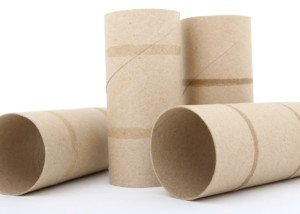One day I began noticing oddly shaped and colored bowel movements that were loose enough to be considered mild diarrhea.
I thought this was related to my period, which was due in several days.
Very soft stools preceding the onset of menstruation had happened to me before, so I really didn’t think a whole lot about this.
However, it was difficult to dismiss the fact that these poops just plain looked weird.
I really began worrying when every day, I kept having this strange looking diarrhea, and my period had already begun.
So I knew this diarrhea wasn’t related to menstruation at that point. Furthermore, I was getting up in the middle of the night to have this diarrhea.
And like clockwork, almost right after getting out of bed in the morning, I had to do another poop. I’d feel this odd unfamiliar churning in my lower stomach. I knew something was wrong.
I was also wondering why the joint aches that began more than a week prior to my period were still with me.
My menstrual related joint aches (PMS) had always disappeared by the time I officially began flowing.
But this time, the joint aches – and the diarrhea – persisted even after my period ended.
At the time, I didn’t connect the joint aches to the diarrhea. Instead I attributed them to some oddball hormonal fluctuation related to my monthly cycle.
I soon had a colonoscopy and some tissue samples from my large colon were extracted and set to a lab for analysis.
A few days later I was told I had microscopic colitis of the lymphocytic type.
This is a benign inflammatory bowel disease.
The cause is not known, but in my case, the onset was preceded by enormous longstanding anxiety over a family situation.
Since being diagnosed with microscopic colitis (which, by the way, is known for causing transient joint aches), I have written quite a few articles about this uncommon condition. Below are links to some of them.
What do microscopic colitis and IBS have in common and their diagnosis
For how long do the joint aches of MC last before the diarrhea finally comes?
Ever wonder if all that diarrhea takes with it all the nutrients you’ve worked so hard to get from eating healthful food?
Can microscopic colitis diarrhea actually strip you of some nutrients?
As for natural approaches to manage the diarrhea, perhaps you’ve been wondering about trying intermittent fasting.
This means confining all food intake, even small snacks, into predetermined segments of time, such as only four, six or eight hours.
Water intake can be at any time, though.
Here’s info on intermittent fasting if you have frequent episodes of diarrhea.









































